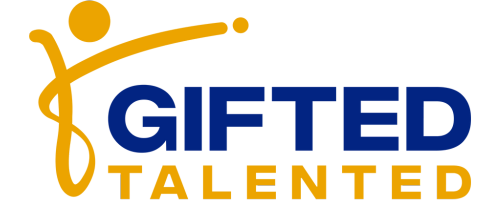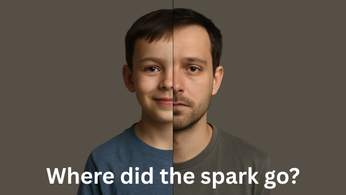
Top Independent Research Mentorship Programs for High School Students (2026)
Every spark of brilliance deserves a chance to grow. These independent research programs give high schoolers the tools and guidance to transform gifts into talents that last a lifetime.
Once a student discovers their spark—a gift for math, a fascination with history, a love of neuroscience—the next step is clear:
How do you develop that passion into real talent?
Google searches and late-night Wikipedia dives can only take you so far.
Even ChatGPT summaries, while helpful, don’t replace original thinking.
To grow, students need:
- Guidance from a mentor who knows the field,
- Structure to turn curiosity into a deep dive, and
- A work product—a paper, portfolio, or presentation—that proves they did more than skim the surface.
That’s what independent research mentorship programs provide.
These programs connect motivated high schoolers with PhD mentors, researchers, and scholars. They offer scaffolding to transform sparks of interest into talents that can be shared, published, or presented. And they do so in a flexible, accessible way that doesn’t depend on elite school connections or geography.
Here are the leading privately operated programs shaping high school research in 2026.
Independent Research Programs
1. Polygence
- Format: Fully online, flexible, and project-focused.
- Mentorship: 1:1 with a large pool of mentors across STEM, humanities, and the arts.
- Cost: Roughly $3,200–$5,800.
- Selectivity: Selective yet accessible to motivated students.
- Fields: Wide-ranging—STEM, medicine, business, law, humanities, media etc.
- Credit: Grants college credit via Gifted And Talented Institute at UC Irvine.
- Output: Research papers, creative portfolios, or applied projects.
- Best for: Students who want maximum freedom to explore and design their own project.
2. Lumiere Education
- Format: Remote, highly structured 1:1 mentorship.
- Mentorship: Exclusively PhD-level mentors.
- Cost: Around $4,500–$6,000.
- Selectivity: Highly selective; admissions are competitive.
- Fields: STEM, social sciences, humanities.
- Credit: Grants college credit via UC San Diego Extended Studies.
- Output: Publication-quality academic papers, often journal-ready.
- Best for: Students who want rigor and a tangible, polished research paper to show for their effort.
3. Pioneer Academics
- Format: Online seminars combined with 1:1 guidance.
- Mentorship: University faculty.
- Cost: $6,000–$6,999.
- Selectivity: Extremely competitive; one of the most selective programs.
- Fields: Broad, including STEM, humanities, and social sciences.
- Credit: Grants college credit via Oberlin’s College of Arts and Sciences.
- Output: Original research under university-level standards.
- Best for: Advanced students seeking prestige, structure, and a credential that carries weight with universities.
4. Horizon Academic (HARP)
- Format: Remote, trimester-long, with 1:1 and seminar options.
- Commitment: 100+ hours, making it one of the deepest time investments.
- Cost: $5,950–$6,450.
- Selectivity: Moderately selective (~26% acceptance rate).
- Fields: STEM, social sciences, humanities.
- Output: Research papers and long-form projects with strong scaffolding.
- Best for: Students ready for serious, sustained effort over months.
5. Veritas AI
- Format: Remote; combines 1:1 mentorship with group projects.
- Specialty: Focused exclusively on artificial intelligence and machine learning.
- Cost: $1,990–$5,400 depending on program length and depth.
- Selectivity: Moderate to selective; best suited for students with STEM interest.
- Output: AI models, coding projects, and applied data science work.
- Best for: Students passionate about AI who want hands-on, technical experience.
6. Indigo Research
- Format: Online with flexible timelines; tiered mentorship (introductory to advanced).
- Mentorship: PhD-level guidance with strong writing and publication support.
- Cost: Starts around $3,800.
- Selectivity: Moderate; designed to be accessible while offering advanced options.
- Fields: STEM, social sciences, humanities.
- Credit: Optional add-ons for credit-bearing options.
- Output: Papers and projects often positioned for publication.
- Best for: Students who want a structured pathway from beginner to advanced researcher.
7. ZeroShot Labs
- Format: Fully online, personalized 1:1 mentorship.
- Specialty: Affordable access to STEM and computer science research.
- Cost: Around $499, far lower than most competitors.
- Selectivity: Very accessible.
- Fields: CS, AI, STEM.
- Output: Personalized projects, often coding or applied STEM.
- Best for: Students and families seeking value—an affordable yet serious entry point into mentored research.
8. Scholar Launch
- Format: Small groups or custom 1:1 mentorship.
- Mentorship: Faculty and TAs from top universities.
- Cost: ~$3,500 (junior); $4,500–$8,800 (advanced).
- Selectivity: Moderate overall; competitive for advanced programs.
- Fields: 450+ topics across STEM, humanities, business, arts, and architecture.
- Output: Projects aimed at publication or competitions.
- Best for: Students who want breadth of choice and group collaboration.
9. VIAX International
- Format: Group and seminar-based, with global mentorship.
- Mentorship: International cohort model.
- Cost: ~$4,000+.
- Selectivity: Moderate/varied.
- Fields: STEM, humanities, social sciences.
- Output: Research projects developed within an international group setting.
- Best for: Students who value cultural diversity and global collaboration.
Why These Programs Matter
Independent research programs aren’t just résumé lines.
They’re the training grounds where gifts turn into talents.
- Guidance & mentorship: Students gain access to experts who can guide their thinking beyond surface-level learning.
- Structured deep dives: Programs provide accountability and rigor—helping teens push past the “Google search” stage.
- Work products to show for it: Research papers, portfolios, apps, or AI models—tangible outputs that prove growth.
- Talent development for all: Whether highly gifted or just deeply curious, students get personalized pathways to grow.
The Parent Takeaway
Every spark of talent needs fuel.
Independent research programs give students the chance to do more than learn about a subject—they let them step inside it. With expert mentorship, structure, and accountability, curiosity becomes capability. Work products—whether papers, apps, or data models—become proof that a young person is not just interested, but committed.
For parents, that’s the real value: knowing your child isn’t just consuming information but creating something of their own.
Because in the end, research isn’t about padding résumés or chasing prestige.
It’s about growing the gifts your child already has into the talents the world will need.
Editor’s Note: At GiftedTalented.com, we believe every child carries sparks of brilliance. Our mission is to help families discover those gifts, develop them into real-world talents, and direct them toward meaningful futures. Curating trusted programs like these is part of that journey—because the right mentorship at the right time can make all the difference.
GiftedTalented.com
The world's fastest growing gifted & talented community








